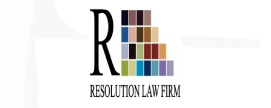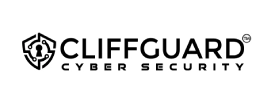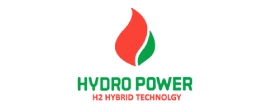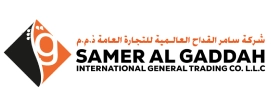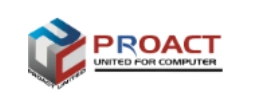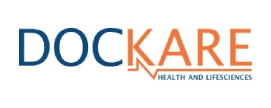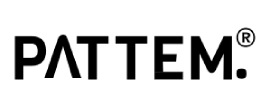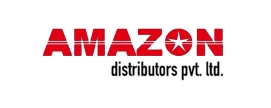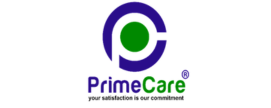GMP Certification
Implementation, Consulting, Auditing & Certification at one place . We focus on taking your business to new heights.
Request a Call Back
Get Free Consultation
Have any Questions?
Mail us Today!
Contact@b2bcert.com
Overview
A method known as good manufacturing practise (GMP) is used to guarantee that goods are consistently manufactured and monitored in accordance with quality standards. It is intended to reduce any production-related hazards associated with pharmaceuticals that cannot be avoided via evaluating the finished product. In addition to being a health risk, low-quality medications cost both governments and individual customers money.Systems must exist to show written evidence that the right steps are consistently taken at each stage of the manufacturing process, each time a product is manufactured. WHO has laid forth specific recommendations for optimal manufacturing practise. Based on WHO GMP, many nations have created their own GMP regulations. Others, such as the Association of South-East Asian Nations, the European Union, and the Pharmaceutical Inspection Convention, have standardised their criteria.GMP is intended to prevent errors from happening. GMP implementation is an investment in high-quality pharmaceuticals. In addition to helping the pharmaceutical business and healthcare professionals, this will enhance the health of the individual patient and the community. Poorly made and distributed medications damage the reputation of the producer, the public health system, and private health care.
How to get GMP Certificate?
The GMP Certificate is a component of an organization’s quality system that covers the production and testing of medical devices, food, cosmetics, pharmaceutical items, diagnostics, and active pharmaceutical ingredients up until the point of use. Validated and monitored production procedures with clear definitions that guarantee consistency and standard compliance Cross-contamination must be avoided by controlling the architecture, operational principles, and environmental factors of manufacturing facilities. Keep the labs and warehouses, as well as the manufacturing shop floor, clean and sanitary.Released products should have accessible trace records that show the whole history of a batch. Investigating the root causes of quality flaws and taking the necessary action against each complaint to address the defective items and avoid future ones. The application comprises certain crucial information about the firm and is the first step in obtaining the GMP certification. The application must be approved by the affirmation body, and all required data must be recorded or maintained in the GMP database. The panel will review the application to ensure that the consistency requirement has been met.Give the value citation to do the Gap Analysis after the document audit in order to cover all the conditions and areas covered by the quality rules. The goal of the gap analysis is to determine how well companies planned and executed their tasks.
Benefits
Instant Business Growth
Management
Reduced waste
Reduces errors
Improved delivery and production schedule
Annual evaluations uphold standards.
What are the Benefits of GMP Certification?
Significantly better quality processes and quality compliance at the manufacturing are two of the main advantages. These advancements have been seen both in the months leading up to GMP certification and in the years that followed. Customers usually change how they monitor companies that have received GMP certification. Customers are aware that in order for a manufacturer to be certified, they must have mechanisms in place and show proof that changes that call for customer notice and non-conformance are handled properly. This assurance is often gained as a consequence of rigorous, multi-day audits of manufacturers as part of a certification audit programme, not through a one-day supplier audit that pharmaceutical firms do. The GMP has a wide range of responsibilities, including controlling all facets of manufacturing, from raw materials to employee training and personal cleanliness. It gives detailed information on the processes that result in the completed product and may have an impact on its quality.
Advantages of GMP Certification
- Improved internal communication and process management.
- It is a guarantee of the quality, safety, and dependability of food products.
- It saves money that would have been spent on recalls of defective products.
- A significant improvement in your market image and brand loyalty.
- Greater trust in disclosures.
- Foodborne disease prevention
- Increase in employee morale.
- Effective resource utilisation.
- Controlling food safety hazards in a timely and effective manner.
- Systematic administration of prerequisite programs.
- Effective decision-making.
Our Advice
Assuming that you are considering how to get GMP Certification. If it’s not too much trouble, contact B2BCERT, a main worldwide organization giving interviews, confirmation, reviews, and other related help all over the globe. You can undoubtedly arrive at B2BCERT by just visiting www.b2bcert.com where you can talk with a specialist or you can likewise compose an inquiry to contact@b2bcert.com so one of our masters will reach you at the earliest to give the most ideal arrangement on the lookout.
Our Services
- ISO Certification
- ISO 9001 Certification
- ISO 14001 Certification
- ISO 45001 Certification
- ISO 22000 Certification
- ISO 27001 Certification
- ISO 13485 Certification
- ISO 17025 Certification
- ISO 27701 Certification
- ISO 20000-1 Certification
- ISO 27032 Certification
- ISO 22483 Certification
- ISO 26000 Certification
- ISO 22301 Certification
- ISO 42001 Certification
- ISO 42001 Certification
- ISO 27017 Certification
- ISO 27018 Certification
- ISO 50001 Certification
- ISO 27014 Certification
- ISO 29990 Certification
- ISO 37001 Certification
- ISO 41001 Certification
- ISO 21001 Certification
- ISO 55001 Certification
- ISO 28000 Certification
- ISO 22716 Certification
- ISO 15189 Certification
- ISO 41001 Certification
- FSSC 22000 Certification
- OHSAS 18001 Certification
- SA 8000 Certification
- HACCP Certification
- GMP Certification
- GDPR Certification
- GDP Certification
- GLP Certification
- HIPAA Certification
- PCI DSS Certification
- SOC 1 Certification
- SOC 2 Certification
- VAPT Certification
- CE Certification
- ROHS Certification
- BIFMA Certification
- FCC Certification
- HALAL Certification
- KOSHER Certification
- NEMA Certification
- Certification of Conformity
- GHP Certification
- Free Sale Certification
- FDA Certification
- GACP Certification























